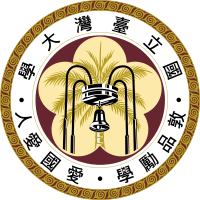【多元觀點】Preface to Globalizing Japanese Philosophy as an Academic Discipline
【多元觀點】
Preface to Globalizing Japanese Philosophy as an Academic Discipline *
Chun-chieh Huang
Dean, Institute For Advanced Study in Humanities and Social Sciences, National Taiwan University
Preface
I am delighted to include this book, co-edited by Professor Cheung Ching-yuen and Lam Wing-keung, in the series Global East Asia, which is a major book series coordinated by the Institute for Advanced Studies in Humanities and Social Sciences (IHS), National Taiwan University (NTU). As this volume on Japanese philosophy as an academic discipline is the first one of the series, I would like to make some remarks.
First of all, the IHS of NTU was conceived in 2005 and established in 2006 as the first "Institute of Advanced Studies" to be established not just in Taiwan but in the greater Chinese language academic area. The main purpose of establishing the IHS was to identify research topics in the humanities and social sciences and to build research teams that could make breakthrough developments while exploring cross-disciplinary topics and studying various cultures.
It should be noted that history has blessed Taiwan by enriching her society and culture with relative peace and stability across the centuries, as well as a rich variety of influences such as the Dutch and Portuguese explorers in the 16th and early 17th centuries. The Chinese came in waves, from Zheng Chenggong's (Koxinga's) Ming loyalists in the early 17th century to settlers from Fujian in the 18th and 19th centuries. The society of Taiwan received the stamp of Chinese culture, and that stamp survived its absorption into the Japanese empire from 1895 to 1945. During that period, Japan strove to modernize Taiwan as a center for East Asian cooperation and trade. In 1945, Taiwan was restored to the Republic of China (ROC) and has been its home since 1949. Thus, throughout the turbulent twentieth century, Taiwan was protected from the military violence, political upheavals, and cultural revolution that roiled mainland China. Taiwan experienced smooth economic and educational development under the Japanese; then during the Postwar period, Taiwan nurtured her political and educational institutions. In this relatively ideal cultural environment, scholars in Taiwan were able to continue age-old traditions of studying, reflecting on, and developing the best of Chinese culture, primarily the Confucian classics, as well as other manifestations such as Buddhism and Daoism.
Because Taiwanese scholars have enjoyed a secure, stable environment for so many decades, they have effectively developed the traditions of scholarship in Chinese culture, and those of the Confucian classics in particular. That is why today at National Taiwan University, for example, so many colleagues are so adept at reading and interpreting the original texts of the Confucian Classics. This ability empowers them also to be able to read the commentaries, not only those by the traditional dynastic Chinese scholars but also those by early Japanese, Korean, and Vietnamese scholars, who also wrote commentaries in Classical Chinese. Thus it was that, in view of this special asset of the NTU faculty, the IHS planned and instituted its Program on East Asian Confucianisms. By similar reflection on fields in the social sciences, the IHS planned and nurtured five other large-scale research programs, including Democratic Studies in East Asia, Courts and Legal Transplants in East Asian Countries, and Psychological Study of the Chinese Self in East Asia. To support, coordinate, and analyze the fruits of these research programs, the IHS also set up three integrated platforms on digital humanities, environment and the humanities, and health and the humanities.
The six research programs at the IHS have led to the publication of over 196 volumes in eleven series of books in Chinese and English. The series Global East Asia comprises books authored by principal investigators or submitted to conferences sponsored by the IHS.
The books included in this series focus to varying degrees on thinking from East Asia. The expression "East Asia" covers "East Asia as a political system" and "East Asia as a cultural contact zone." Either way, over the past several millennia, the intercourse and relationships among these East Asian countries and regions exhibited extreme asymmetries of power and culture that inevitably led to political leviathans and cultural hegemony. In the 20th century, many East Asian scholars of the humanities and social scientists were influenced by academic paradigms borrowed from the United States or Europe. They extrapolated ideas from theories in the humanities and social science that were based on Euro-American experiences and applied them uncritically to their East Asian studies, cutting and trimming the data to fit inappropriately imported paradigms. Because "the West" stood for the "Significant Other in Absentia" in the back of these scholars' minds as they engaged in their research, they granted serious treatment only to East Asian phenomena that were similar to or comparable with European or American experiences. For this reason, "Thinking from East Asia" is an issue that warrants the serious attention of East Asian scholars today.
However, the "Thinking from East Asia" that we advocate in this book series is not another form of Reflexive Orientalism. Rather, it seeks to compare and contrast the cultures and intellectual traditions of the countries and regions of East Asia. Only by understanding these similarities and differences can we grasp their deeper traditional commonalities and divergences so that future scholars may avoid the pitfalls of cultural ethnocentrism and political solipsism.
In "Thinking from East Asia," our program of "East Asian Confucianisms" stands out as a major point of departure. The field of "East Asian Confucianisms" embraces a pluralistic outlook and a comparative methodological stance. Although "East Asian Confucianisms" embraces the Confucian traditions of China, Japan, Korea, Taiwan, and Vietnam, it is by no means merely a synthetic concept embracing them all as a unified whole. At the same time, the development of "East Asian Confucianisms" manifests "continuity of development" and "similarity of intellectual framework." We should not only study the similarities among the "East Asian Confucianisms" of each part of East Asia; we should also carefully analyze their different trends and tendencies. By pioneering in the field of East Asian Confucianisms, on the one hand, we transcend the constraints of the traditional methodology of Sinology while casting off the state-centric bias that plagues traditional scholars. Through retrospection, we see that the East Asian approach is "forward looking" and encompasses "future" and "past." In this age of globalization in the 21st century, if we endeavor to explore the field of East Asia as a cultural field, taking the Confucian classics as its core and culture as our research context, we may broadly engage in East-West cultural exchange and focus on the cultural interactions among the different regions of East Asia. In this way, we may discuss the changes and development of the classical Confucian concepts and values in the cultural-historical context of each part of East Asia and thereby pioneer a colorful, enticing new realm of Confucian studies for the 21st century.
Today, we are in a better position to appreciate the reasons for including Japanese Philosophy as an Academic Discipline in our series. The move from tradition to modernity in Japan, which began in the middle of the 19th century, was quite drastic. As the twentieth-century intellectual Fukuzawa Yukichi 福澤諭吉 (1835-1901) pointed out vividly, the intellectuals of Meiji Japan had two bodies in one life, namely, the upper "body of Chinese studies" and the lower "body of Western studies." Among the various disciplines of traditional Sinological studies, Confucianism was of paramount importance. After the Meiji Restoration, the importance of Confucianism was quickly replaced by European philosophy, predominantly German idealism. Therefore, Japanese philosophy as an academic discipline has been developing since the latter half of the 19th century.
However, in contrast with Confucianism, a time-honored tradition of thought, the modern Japanese philosophy requires some degree of justification as an academic discipline for teaching and research. In other words, Japanese philosophy as an academic discipline needs a discourse for its raison d'être. All seventeen articles in this volume review the current status of the teaching and research of Japanese philosophy in the global context and discuss a variety of issues involved in Japanese philosophy as a new field of study.
In conclusion, we publish this volume in the hope that it will open a new vista for the teaching and researching of Japanese philosophy in the 21st century.
*本文係本院與德國V&R unipress共同發行Wing-keung Lam and Ching-yuen Cheung (eds.), Globalizing Japanese Philosophy as an Academic Discipline (Göttingen and Taipei: V&R unipress and National Taiwan University Press, 2016) 一書之序文。



